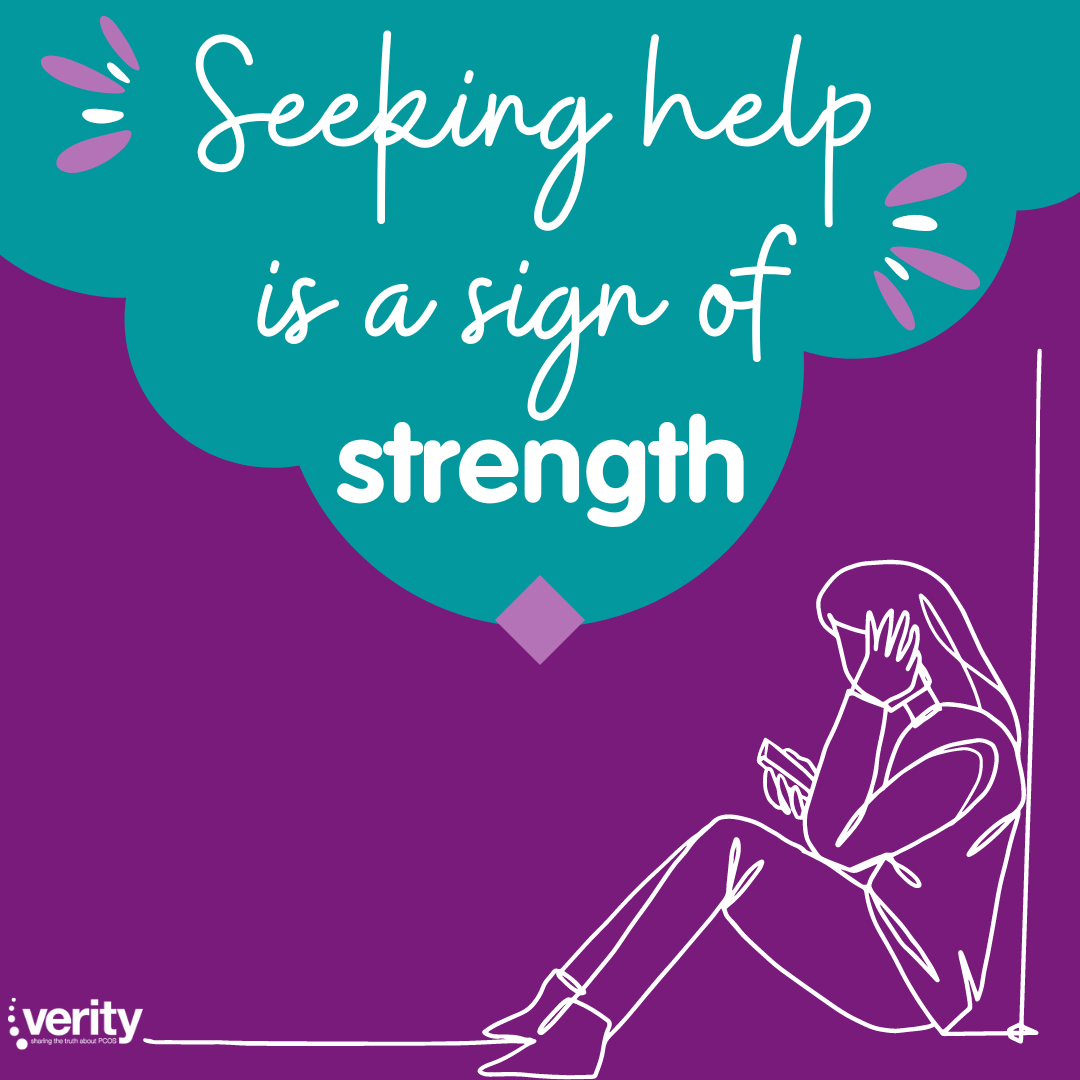[ad_1]
Living with Polycystic Ovary Syndrome (PCOS) can be an emotional rollercoaster, affecting various aspects of our lives. From hirsutism and acne to mood swings and infertility, the challenges we face can feel overwhelming at times. However, it’s crucial to remember that seeking help is not a sign of weakness but a remarkable display of strength. In this post, we will delve into the importance of seeking support, and the various avenues available to us, as we navigate the complexities of PCOS.

- Break the Stigma
It’s essential to understand that seeking help is an act of courage, not vulnerability. Society often perpetuates the notion that asking for assistance is a sign of weakness. But in reality, acknowledging our struggles and reaching out for support is a testament to our strength and resilience. By seeking help, we take an empowering step towards our well-being. Having PCOS is nothing to be ashamed about, you are enough and worthy of love and care just as you are. - Your GP
Your GP is your first line of support on your PCOS journey. They possess the knowledge and expertise to guide you through diagnosis, treatment options, and lifestyle changes. They can refer you to specialists to help manage individual symptoms such as a dermatologist to manage hair loss, acne and hirsutism, a dietitian or gym for diet and lifestyle assistance or a reproductive endocrinologist for hormone balancing or fertility. Your GP can also sign post you or refer you to talking therapies and cognitive behavioural therapy (CBT). Many can find it overwhelming discussing any of the PCOS symptoms with a doctor, so it can also be helpful to write down your concerns and questions, or even take a loved one with you. Remember, your GP is there to listen, offer advice, and help you create a personalised care plan. - Support Groups
Connecting with others who share similar experiences can be immensely comforting and empowering. Online support groups dedicated to PCOS provide a safe space to share your thoughts, ask questions, and gain insights from individuals who truly understand what you’re going through. Engaging in these communities can foster a sense of belonging and offer valuable emotional support. Verity has a main Facebook Group (private and confidential) with over 6000 others that have PCOS. We also have a community at HealthUnlocked (anonymous forum where there are other communities for different health conditions) or find your nearest local support Group where you can connect with, and ask questions to, other PCOS patients face to face over a cuppa. - Friends and Family
The love and support of our loved ones can be a powerful source of strength on our PCOS journey. Don’t hesitate to confide in your friends and family about your struggles. Their understanding and encouragement can make a significant difference. Often, sharing our challenges with trusted individuals opens up avenues for deeper connection and a support network that uplifts us. - A Listening Ear
At times, we may feel overwhelmed by the emotional toll that PCOS can take on our mental well-being. During such moments, reaching out to helplines like the Samaritans can be incredibly beneficial. Trained professionals provide a listening ear and offer non-judgmental support when we need it the most. Remember, seeking emotional support is not a sign of weakness but a vital step towards self-care. You can contact The Samaritans via their website or call 116 123 which is available 24×7.
On the journey with PCOS, we encounter a multitude of challenges that impact our physical and emotional well-being. It’s essential to recognize that seeking help is not a sign of weakness but an act of strength. By embracing the support available to us, whether it be through our GP, online support groups, or our trusted friends and family, we empower ourselves to face these challenges head-on.
Remember, you are never alone on this journey, and there is strength in seeking help.
[ad_2]
Source link

